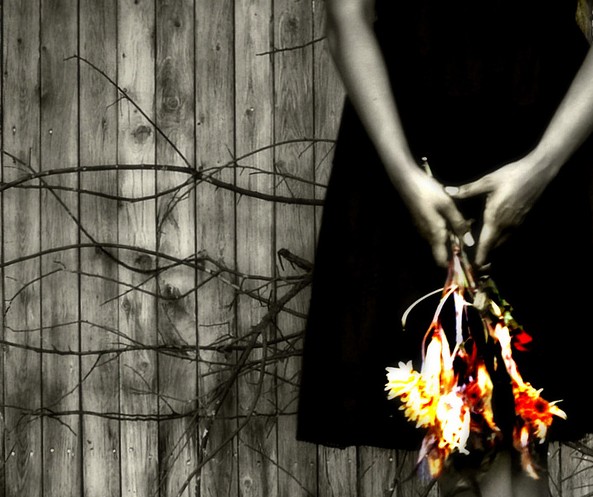
“What characterises the human race more, Karla once asked me, cruelty, or the capacity to feel shame for it? I thought the question acutely clever then, when I first heard it, but I’m lonelier and wiser now and I know it isn’t cruelty or shame that characterises the human race. It’s forgiveness that makes us what we are. Without forgiveness, our species would’ve annihilated itself in endless retributions.” ~ Gregory David Roberts, from Shantaram.
Forgiveness is a necessary ingredient for healthy, successful, long term relationships.
I come to this conclusion with the recognition that no individual walking this planet is “perfect.” Perfect, in this sense, refers to an external, ideal of ourselves that we could never truly attain. Constantly evolving, we are perfectly flawed, bringing the reality of our whole selves to the table in all our connections. We bring our insecurities, our anger, our fear, as well as our love, our inspiration and our creativity.
Researcher Brené Brown puts it succinctly when she says, “We cannot selectively numb.”
We cannot seek to numb our anger and keep our joy, they come hand in hand with the entirety of our persona. To unconditionally love someone we must forgive continuously.
When I read Robert’s book Shantaram, an amazing book that depicts human frailty and humanity’s ability to overcome adversity, I recognized the deep truth in his portrayal of forgiveness.
In my younger years I was acutely idealistic, expecting a lot from the world around me and, likewise, the people I was surrounded by. Its not that I do not hold my friends to a high regard any longer, they are brilliant, soulful, considerate people—most of the time!
And sometimes we are all human with human traumas, triggers, frustrations, and tempers. As I get older I begin to see the beauty in our human imperfection. As I allow for this imperfect truth within myself, I allow for it in others as well. Therein lies a place for depth in connection, an owning of the issues I bring to the table and space for the issues my loved ones bring to the table.
When I find myself hurt by the actions of a loved one, how do I forgive, let go and more forward with love in my heart?
Forgiveness is not a verb. It is not an action we take. We all know this in moments when someone, say a lover or a friend, has hurt us and they apologize. We accept their apology, understand where they were coming from, yet still feel hurt. That space between making a choice and the lack of ability to fully enact that choice tells me that forgiveness is not a verb. Forgiveness is not a command, it is a process that slowly unveils itself through time. Throughout my life I have struggled with forgiveness and letting go. Yet I recognize that holding onto anger or hurt only harms myself, destroying friendships once held sacred and losing out on deep, beautiful connections.
It is the perseverance through this struggle, however, that has led me to develop three keys to assist the process of forgiveness. With these qualities fully embodied, forgiveness tumbles forth with far less effort.
Compassion
Cultivating compassion is crucial to attaining a state of forgiveness. When we compassionately understand why a person did something and what their motivating factors may have been, we begin to unravel the knot of hurt within us. We begin to let go and surrender to forgiveness. Without compassion, thoughts of hurt continue ruminating within us and that knot continues to tighten. Compassion is the deep understanding of the difficulty that life sometimes presents every human being with and in that lies our connectedness.
Empathy
The capacity to understand another person’s perspective, to tap into the feeling that pushed them towards action and recognize the existence of that same feeling within ourselves, softens our anger. Empathy differs from compassion only slightly as it enables itself at a more one-on-one connection level. We feel empathy for this person in front of us, but we can feel compassion for all of humanity. Empathy involves really hearing and seeing another and allowing ourselves enough vulnerability to be seen in shared experience by them. Where forgiveness is necessary, we can seek to tap into a moment where we hurt someone we loved and recall that challenge.
I have started to work on recognizing where my responses to situations stem from. Sometimes they stem from love and soulful connection, I cherish those times. Sometimes they stem from deep insecurity or triggers from my childhood. It’s in these moments that I hope for compassion and empathy from my loved ones, understanding that my reaction was not about them but about an issue with myself. Recognizing how my own reactions are often trigger responses to past experiences, I can cultivate that awareness regarding other people’s reactions towards me. I do not need to always know what the trigger is or all the details of another person’s inner process. Cultivating empathy is merely about understanding that people’s reactions may be rooted in some deep pain or trauma.
Acceptance
I learned at a young age that the key to letting go of the past is to accept it. Often we tumble the same occurrence over in our minds like a ball of yarn we are trying to untangle. We wonder, “if this happened I wouldn’t feel this way” and “if she said this, we would be okay.” The reality is that we cannot change the past, we can only accept and process it. Once we accept the past we can begin to ask ourselves what we need to be okay with what has happened. We can develop concrete plans for engaging differently in the future, such as changing how we communicate boundaries or walking away from conversations at a certain point. And we need to accept what happened for it can never be changed. It is a truth that will exist in our life forever and only once we accept that can forgiveness spread its wings.
Compassion, empathy and acceptance are qualities we can cultivate within ourselves. Over time these qualities will allow us to slowly soften that knot of hurt and anger, so that forgiveness is able to slip in and work its magic. Our work, if we choose this path, is to fill the space between with these three qualities to assist us on our way. In my life, I have found that this allows space for relationships to withstand adversity and carve out far greater depth.
~
Author: Alia Mai
Editor: Sarah Kolkka
Image: laura betancourt/Flickr












Read 0 comments and reply